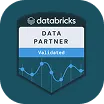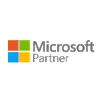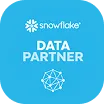The Benefits of Using Rotating Residential Proxies
Learn 5 reasons why rotating residential proxies are superior to other proxy options and 7 practical applications for using them.


Proxies are used to maintain anonymity and security online, whether for professional purposes like web scraping and ad verification or for a personal need to have increased privacy on the web. But, not all proxies are built the same.
There are several proxy server types, some of which are more suited for certain applications than others. The standard data center proxy that may work to hide your IP address for at-home anonymous browsing won’t work if you want to submit thousands of requests to scrape Amazon or run cybersecurity penetration tests.
Keep reading to learn the benefits of using residential rotating proxies for both professional and personal applications.
What’s a Proxy?
As a refresher, a proxy is an intermediary technology that allows a web user to mask their true IP address by having their web traffic rerouted through another IP address. This makes it appear like your web traffic is coming from another device, which can boost privacy and make your traffic harder to analyze and block.
Online privacy proxies are useful for getting around geo-restrictions, increasing security, enabling anonymous browsing, bypassing anti-scraping measures, and aiding in any other application where it’s advantageous to hide your true IP address.
What are Rotating Residential Proxies?
Rotating residential proxies use residential IP addresses (think home computers or smartphones) and automatically change the IP address assigned to the user at regular intervals without interrupting the browsing session. Residential rotating proxies are used for web scraping and other high-volume professional applications.
Rotating residential proxies can be contrasted to:
- Datacenter proxies use IP addresses from data centers that are more likely to be blocked by various online restrictions, such as anti-bot software.
- Static residential proxies only allow the use of a single residential IP address per session rather than IP address rotation. Static proxies make it easier for websites to track and analyze your behavior.
How Do Rotating Residential Proxies Work?
Rotating residential proxies work by routing your browsing session through a cycling pool of residential IP addresses. The IP address rotation can be automatic, set to occur at specific intervals, or set to occur after a certain number of requests. Usually, you can request to route traffic through a certain geographic location, if needed.
Providers that offer this type of online privacy proxy typically have platforms that allow you to choose specific proxies, geolocations, rotation triggers or intervals, and session duration lengths.
Why Are Rotating Residential Proxies Better than Data Center Proxies or Static Residential Proxies?
Websites want traffic from real human beings who, unlike bots, can actually engage with the website’s content or buy its products. So, most websites use anti-bot measures to block non-human traffic. These measures work by detecting common signs that traffic isn’t coming from a human, such as:
- The use of datacenter IP addresses, which are almost exclusively used by bots.
- Irregular patterns in user behavior like long browsing sessions, repetitive or high-volume actions, or actions that occur too quickly.
- Too many requests coming from a single IP, which indicates scraping activity.
Using a residential IP makes it appear like your traffic is coming from a real human, while using rotating IP addresses helps prevent websites from analyzing your traffic patterns or spotting irregular activity. So, rotating residential IPs have the highest likelihood of allowing you to bypass restrictions.
The Key Benefits of Rotating Residential Proxies
Because rotating residential proxies mimic human users and make your traffic hard to track, they have several key benefits over other proxy options.
1. Enhanced Anonymity and Privacy
Most security and tracking software is set up to track the behavior of a single IP address. Rotating residential proxies change your IP address without interrupting your browsing session, making it difficult for websites to track and profile your online behavior. This prevents both rogue bad actors and standard data miners from prying into your browsing activities.
2. Higher Success Rates in Web Scraping
Web scrapers are in a constant arms race with anti-scraping measures websites implement to prevent people from taking their data. Most of these anti-scraping measures block traffic based on assumptions that scraping traffic will use data mining proxies that utilize data center IPs and will appear bot-like. Residential rotating proxies for web scraping circumvent these restrictions by mimicking a human’s IP address and making it hard to track your bot-like behavior.
3. Bypassing Geo-Restrictions
Geographic restrictions that prevent certain content or services from being accessed in certain geographic zones are one of the most common reasons people use proxies. Rotating residential proxies bypass geo-restrictions by allowing you to use IP addresses from a location where the content is accessible. If you also need to bypass anti-bot measures, using residential proxy IP rotation focused in a certain geographic zone can kill two birds with one stone.
4. Bypassing IP Bans
Many websites enforce bans against problematic users and bots by blocking all activity from a certain IP address. Rotating residential proxies let you bypass these bans by accessing the website through a different IP address. They also minimize the chance of getting banned again, because you can rotate to a different IP address before your traffic triggers a blocking mechanism, like reaching a certain rate limit.
5. Improved Online Security
Since rotating residential proxies offer the highest level of privacy and anonymity, they also decrease the likelihood of your activity being intercepted by cyber threats or malicious actors. Between using a legitimate residential IP and multiple IPs in one session, it’s very difficult for malicious actors to pinpoint where exactly your activity is coming from—which makes it much harder to target you.

7 Practical Applications of Rotating Residential Proxies
Because rotating residential proxies can mimic genuine residential users and route traffic through a variety of geolocations and IPs, using them increases security and decreases the likelihood your internet activity will be flagged as bot activity. This makes them applicable to a wide variety of practical applications, especially in commercial web scraping and data mining settings. Here are a few use cases for residential proxies with proxy IP rotation.
1. SEO Monitoring
- Keyword Ranking Analysis: Track keyword rankings accurately across different regions and devices.
- Competitor Analysis: Monitor competitors’ SEO strategies, backlink profiles, and content performance without getting blocked by anti-scraping measures.
- Search Engine Results Pages (SERP) Scraping: Use uninterrupted, multiple-IP scraping sessions to collect data from SERPs to understand visibility and identify opportunities for improvement.
- Local SEO Monitoring: Analyze local search results in specific geolocations to optimize your local SEO tactics for different audience segments.
2. Ad Verification
- Prevent Ad Fraud: Ensure ads are displayed correctly and are not manipulated by fraudulent activities by viewing them through IP addresses that mimic your target audience’s IP addresses.
- Geo-targeting Verification and Performance Tracking: Verify if ads are being served correctly and track performance metrics like impressions and click-through rates across targeted regions.
- Compliance Monitoring: Ensure ads comply with regional regulations and guidelines by accessing them through different geolocations.
- Ad Placement and Format Verification: Confirm that ads are appearing in the intended placements and formats
3. Social Media Management
- Account Management: Manage multiple social media accounts through the same device without getting flagged for unusual activity.
- Continuous Large-scale Data Collection: Use long, sticky sessions that utilize multiple IPs to continuously extract data from social media platforms for analytics and sentiment analysis purposes without being flagged as a bot.
- Regional Trend Analysis: Monitor social media trends and hashtags to stay updated with current topics by accessing real-time data from different regional user bases.
- Automate Account Activity: Direct automated activities like liking, commenting, and posting through legitimate residential IP addresses to boost activity without penalty.
4. E-Commerce
- Price Scraping and Competitive Analysis: Bypass anti-scraping measures and collect competitive pricing data and inventory/availability data from competitors.
- Monitor and Manage Listings: Test how your listings appear across different regions and different websites.
- Localized Content Testing: Ensure that content, promotions, and ads are correctly tailored to various geographical locations by simulating user interactions from different regions.
- Customer Behavior and Sentiment Analysis: Bypass anti-scraping measures to analyze customer purchasing behavior, preferences, and sentiments across review sites and social media.
5. Cybersecurity
- Penetration Testing: Rotate IP addresses to test the robustness of security measures while avoiding rate limits.
- Maintain Anonymity and Privacy: Maintain anonymity while performing security assessments or investigations by ensuring your requests aren’t associated with your true IP address.
- Collect Security Data for Research: Scrape websites for information about vulnerabilities, security flaws, and malware on a large scale without being blocked by anti-bot software.
- Protect Sensitive Resources: Use rotating proxies while conducting sensitive operations or accessing important resources to obscure the origin of your access requests and reduce the risk of targeted attacks.
5. Research and Development
- Access Restricted Content & Avoid Data Bias: Bypass geographical and IP-based restrictions to access important journals, papers, and resources. Minimize data bias that may result from localized research.
- Large-Scale Data Collection: Gather extensive data from multiple sources for research without facing rate limits, bans, or other anti-scraping measures.
- Real-time Data Collection: Use long, sticky sessions with rotating IPs to continuously collect real-time data from sources.
- Prototype Testing: Simulate user behavior from different geolocations and IP addresses to test new software and applications in a variety of conditions.
- Innovation Monitoring & Competitive Analysis: Continuously monitor competitors' websites and news of technological advancements and innovations across different regions without being blocked.
6. Brand Protection
- Continual Market Surveillance: Use long, multi-IP sessions to continually monitor the market for any fraudulent or unauthorized activities such as counterfeits or trademark infringement while avoiding restrictions.
- Brand Reputation Management: Track mentions and reviews of your brand across various platforms to analyze sentiment across different locations and user bases.
- Compliance Enforcement: Ensure adherence to brand guidelines and policies across different regions and websites by tracking brand-related data.
- Gather Competitive Intelligence: Analyze market trends and track competitors marketing strategies, pricing, and other activities without triggering anti-scraping measures or rate limits.
How to Implement Rotating Residential Proxies
Implementing rotating residential proxies can be straightforward if you follow these steps:
Select a Reliable Proxy Provider
Choose a provider that offers a vast pool of residential IP addresses across a broad geographic distribution. The more granular the geolocation options, such as specific cities or US zipcodes, the better. Your provider should also offer reliable customer support, the ability to run long sessions, and robust and flexible IP rotation mechanisms that allow you to choose between a rotating and static session.
Configure Your Proxies for Your Use Case
Set up the proxy in your web scraping tool, browser, or application. Instructions on how to do this can normally be found in your proxy provider’s documentation. Choose which geolocations you need to access, and adjust the rotation settings to match your requirements, such as rotating the IP proxy after a certain number of requests or at regular intervals.
Follow Best Practices for Optimal Performance
To get the most out of your rotating residential proxies, follow these best practices:
- Monitor Performance: Regularly check the performance of your proxies to ensure they are functioning correctly and efficiently.
- Update Configurations: Keep your proxy configurations up-to-date to adapt to any changes in your needs or the proxy provider's offerings.
- Use Proxy Management Tools: Consider using proxy management tools to streamline the process of configuring and monitoring your proxies. Many rotating residential proxy providers have management tools built into their proxy service.
Conclusion
Whether you’re using proxies for personal anonymity reasons or for professional web-scraping applications, it’s important to use the most sophisticated technologies to ensure upmost security, anonymity, and functionality. While other types of proxies like data center proxies and static IP residential proxies have their uses, rotating residential proxies are undoubtedly the best option for avoiding security issues and bypassing captchas, restrictions, and anti-scraping software.
If you want to learn more about residential proxies and how they can serve different use cases, check out the related content below, or go here to learn about our AI-optimized rotating residential proxies.
→ Related content:
- Nimble's Residential Proxies
- ISP Proxies vs. Residential Proxies: Guide to Pros, Cons, and Use Cases
FAQ
Answers to frequently asked questions
.avif)





.png)






